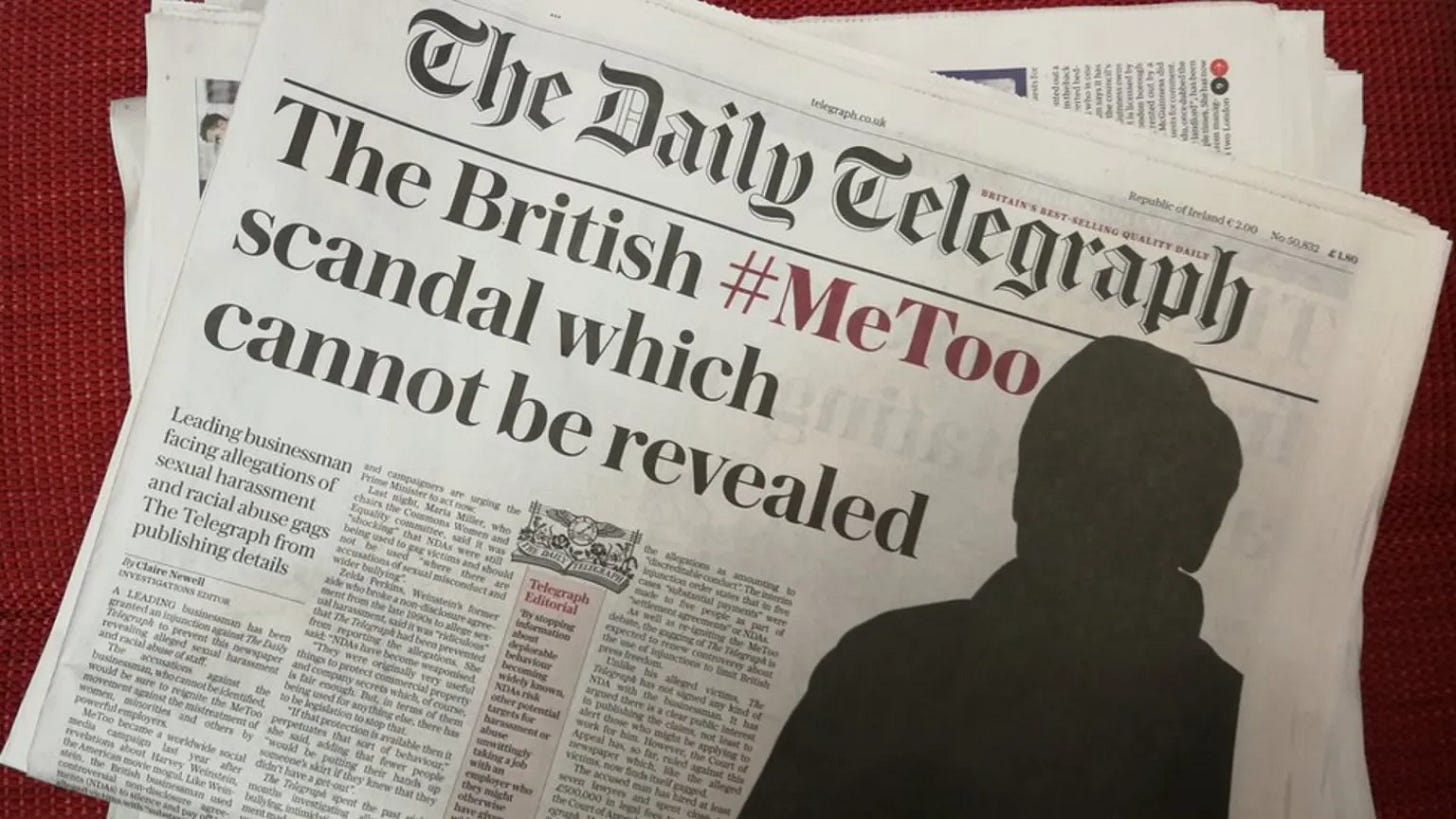Knight challenges Lords
Sir Philip Green says parliamentary privilege should not circumvent injunctions
The business executive Sir Philip Green will learn today whether he was denied his human rights when he was accused in the House of Lords in 2018 of “using non-disclosure agreements and substantial payments to conceal the truth about serious and repeated sexual harassment, racist abuse and bullying which is compulsively continuing”.
Green lodged a complaint at the European Court of Human Rights after he was identified by the Labour peer and former cabinet minister Lord Hain, whose remarks were protected by parliamentary privilege.

The former retailer accused the UK government of breaching three provisions in the human rights convention:
Article 6, the right to a fair trial. Green says that Hain’s statement rendered futile a breach of confidence claim he was bringing against the Telegraph newspaper. He complains that he was not able to bring proceedings against Hain for breach of an injunction against naming him. Green is not challenging the principle of parliamentary privilege itself — but rather the absence of prior and subsequent controls to stop members of parliament revealing confidential information that is subject to an injunction.
Article 8, respect for private and family life. Green says article 8 is breached by government rules allowing disclosure in parliament of information subject to an injunction.
Article 13, the right to an effective remedy. Green says he has no effective
remedy in respect his complaints under articles 6 and 8 because cannot sue Hain and because the government has failed to implement effective controls.
The UK has undertaken to abide by the final judgment of the human rights court in any case to which it is a party.
The story so far
In July 2018, Green was contacted by Daniel Foggo, a journalist working for the Telegraph who wanted to report serious allegations of sexual harassment and bullying made against Green by former employees of Arcadia, which he chaired, and Topshop, one of its retail outlets.
Green believed that former staff had broken their duty of confidence by speaking to the newspaper. He applied for an injunction.
The High Court refused an injunction but issued a temporary order while Green sought permission to appeal.
On 23 October the Court of Appeal overturned the High Court ruling and issued a temporary injunction pending an expedited trial.
On 24 October the Telegraph reported the Court of Appeal ruling without identifying the claimant.
On 25 October, after a debate on an unrelated issue in the House of Lords chamber, Lord Hain made this personal statement:
Hain’s statement was widely reported. The anonymity orders were later discharged by consent.
In February 2019, Green discontinued his claim against the Telegraph. The newspaper was then free to report the allegations against him. He denied the allegations of unlawful sexual or racist behaviour.
Green lodged his claim at the European Court of Human Rights in April 2019.
In September 2020, the court asked him and the UK government a series of detailed questions. Like most cases at the human rights court, Green’s claim against the UK was then considered without an oral hearing.
Today’s Telegraph carries a lively summary of the background.
Update 0915: Green has lost:
This is what the court said about article 8:
In keeping with the well-established constitutional principle of the autonomy of parliament… it is in the first instance for national parliaments to assess the need to restrict conduct by their members... As the United Kingdom parliament is aware of the problem of parliamentary privilege being used to frustrate injunctions and has addressed the need for further controls… the court considers that for the time being it may be left to the respondent state, and parliament in particular, to determine whether and to what extent ex ante and ex post controls might be necessary to prevent its members from revealing information subject to privacy injunctions.
However, given the serious impact that the disclosure of such information may have on the privacy of the individual concerned, not to mention the implications for the rule of law and the separation of powers within the United Kingdom constitution of parliamentarians usurping the role of judges who have considered it necessary, after viewing the evidence before them, to grant an injunction, the court considers that the need for appropriate controls must be kept under regular review at the domestic level.
Consequently, as things currently stand the rule on parliamentary privilege did not exceed the margin of appreciation afforded to the respondent state and there exist no sufficiently strong reasons to justify the court substituting its view for that of parliament and requiring it or the respondent State to introduce further ex ante and ex post controls on freedom of speech in Parliament.
Accordingly, the court concludes that there has been no violation of Article 8 of the convention.
Comment
This case has taken an unusually long time to resolve, suggesting the court found it difficult. Although the judges decided not to interfere, they issued a warning to the UK government: “the need for appropriate controls must be kept under regular review”.
This is a chamber judgment, which means that both sides now have three months within which they can ask for the case to be referred to the court’s grand chamber for a final ruling. But not many such appeals are heard, let alone granted.
In 2024, the court dealt with 332 applications against the UK. It delivered three UK judgments last year. In only one of these — a complaint by the publishers of the Daily Mail about legal costs they were ordered to pay — the UK was found to have breached the human rights convention.







All I am moved fo say on this issue for the present is that I have long been troubled by NDAs wherever there is a marked inequality of arms between employer and employee. For the latter it must often seem a case of Hobson’s choice to sign up. With cases concerning Sir P I opt to add nothing.
As I understand it, parliamentary privilege works pretty well. Without it, free speech would be chilled by a constant flow of civil actions taken by rich vested interests; while there are mechanisms within parliament which minimises abuse. If a member utters something knowing it will meet the Speakers/Lord Speakers disapproval, they won't be called again to speak for a very long time.